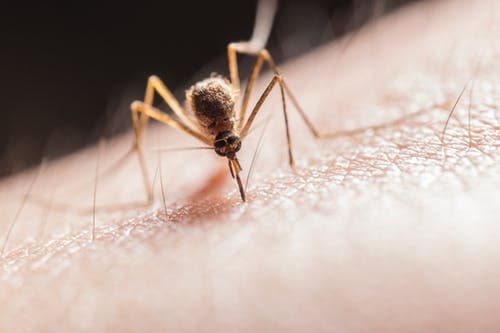Mosquitoes in Halton Test Positive for West Nile Virus
Published August 15, 2019 at 8:41 pm

Halton residents are urged to protect themselves after mosquitoes tested positive for West Nile Virus (WNV) in the region.
Halton residents are urged to protect themselves after mosquitoes tested positive for West Nile Virus (WNV) in the region.
The Regional Municipality of Halton reports that two batches of mosquitoes trapped this week in Oakville and one batch in Milton have tested positive for WNV.
“Halton is committed to reducing West Nile virus in our communities through education and preventative programs such as larviciding,” said Dr. Hamidah Meghani, Halton Region Medical Officer of Health, in a press release.
These are the first batches of WNV positive mosquitoes for Halton this year, the region says.
The types of mosquitoes that transmit WNV to humans most commonly breed in urban areas such as bird baths, plant pots, old toys, tires and other locations that hold water.
“Until the hard frosts of fall set in,” Meghani said, “Halton residents should continue to protect themselves against mosquito bites and remove mosquito breeding sites.”
Residents can take the following steps to protect themselves:
- Cover up. Wear light-coloured, long-sleeved shirts and pants with tightly-woven fabric.
- Avoid being outdoors from early evening to morning when mosquitoes are most active and likely to bite, as well as at any time in shady, wooded areas.
- Reduce mosquito breeding sites around your home by getting rid of all water-filled containers and objects, where possible.
- Change the water in bird baths at least once per week.
- Use an approved insect repellent, such as one containing DEET or Icaridin.
- Make sure window and door screens are tight and without holes, cuts or other openings.
Four out of five people do not show any symptoms after they are bit while others see symptoms two to 15 days after being bitten by an infected mosquito, the Ontario Public Health website says.
Common symptoms include fever, headache, body aches, nausea, vomiting, the appearance of a rash on the chest, stomach or back.
Approximately one in 150 people will have serious symptoms that include high fever, severe headache, muscle weakness, stiff neck, confusion, tremors, numbness or a sudden sensitivity to light.
If you feel or suspect someone you know has been infected, you are urged to reach out to your family doctor or local health-care provider.
insauga's Editorial Standards and Policies advertising





